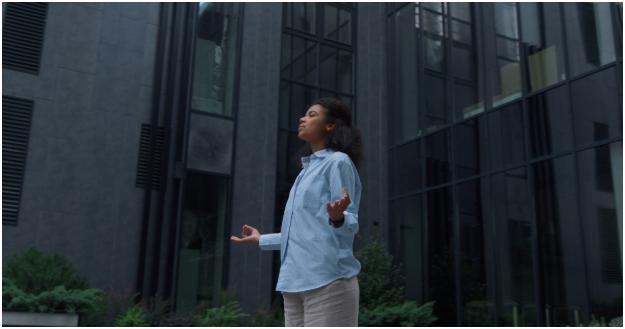
Practical Steps For Managing Stress Through Mindfulness Techniques
Stress is an inevitable part of life, but it doesn’t have to dominate your mental or physical well-being. At Perpetual Accountability Responsibility Change (PARC) at Sankofa LLC, we believe that stress management is essential for achieving a balanced, healthy, and fulfilled life. Mindfulness offers an effective, science-backed approach to managing stress, promoting wellness, and transforming how you respond to life’s challenges.
In this guide, we’ll explore practical mindfulness techniques you can incorporate into your daily routine, helping you navigate stress and embrace a path of least resistance toward becoming the whole you.
The Science Behind Mindfulness and Stress Relief
Mindfulness is the practice of being present in the moment, focusing on your thoughts, feelings, and surroundings without judgment. Research from the American Psychological Association has shown that mindfulness reduces the production of stress hormones like cortisol, improves emotional regulation, and fosters mental clarity. These benefits make mindfulness a powerful tool for anger management, conflict resolution, and domestic violence treatment.
Practical Steps for Managing Stress Through Mindfulness Techniques

1. Start with Mindful Breathing
- How it works: Focus on your breath as it enters and leaves your body. Breathing deeply engages your parasympathetic nervous system, which counteracts the stress response.
- Practical Tip: Set aside 2-3 minutes daily to practice mindful breathing. Inhale for four counts, hold for four counts and exhale for four counts.
2. Practice Body Scanning
- How it works: A body scan involves paying attention to each part of your body, noticing areas of tension or discomfort, and releasing stress consciously.
- Practical Tip: Spend 5-10 minutes at the end of your day lying down or sitting comfortably. Start from your toes and work up to your head, pausing at each body part to relax and let go.
3. Engage in Mindful Walking
- How it works: Walking mindfully can combine physical activity with mental focus, helping you ground yourself in the present moment.
- Practical Tip: Walk slowly and deliberately, paying attention to each step. Notice how your feet feel against the ground and the rhythm of your movements.
4. Utilize Journaling for Emotional Awareness
- How it works: Journaling your thoughts and feelings can help you process emotions and identify stressors.
- Practical Tip: Dedicate 10 minutes a day to writing down what you’re grateful for, what challenges you faced, and how you responded.
5. Incorporate Mindfulness into Routine Tasks
- How it works: Bring mindfulness to everyday activities like eating, cleaning, or even showering by focusing entirely on the task at hand.
- Practical Tip: When eating, focus on the texture, taste, and smell of your food. This not only reduces stress but enhances your overall experience.
6. Join a Guided Workshop or Class
- How it works: Participating in a mindfulness workshop allows you to learn from experts and connect with others on a similar journey.
- Practical Tip: Consider signing up for our Life of Ease Workshops at PARC, where we offer personalized guidance on stress management, conflict resolution, and wellness.
Mindfulness in Domestic Violence and Anger Management Treatment
For individuals struggling with anger management or navigating the effects of domestic violence, mindfulness is a transformative tool. It helps reduce impulsivity, promotes emotional control, and fosters healthier interpersonal relationships. At PARC, we integrate mindfulness techniques into our treatment plans to help clients develop skills for lasting change and peace.
Benefits of Mindfulness Beyond Stress Management
Mindfulness is not only about stress relief; it is also a pathway to holistic wellness. By fostering self-awareness and acceptance, mindfulness can improve your overall quality of life, enhance relationships, and support personal growth.
Scientific Evidence Supporting Mindfulness
A 2019 study published in JAMA Internal Medicine found that mindfulness-based stress reduction (MBSR) programs significantly lowered stress levels and improved well-being in participants. Additionally, neuroscientific research has shown that regular mindfulness practice enhances the brain’s prefrontal cortex, which is responsible for decision-making and self-control.

Take the First Step Toward Stress-Free Living
Mindfulness is not a one-time fix but a lifelong journey of self-discovery and resilience. Whether you’re seeking stress relief, anger management, or domestic violence treatment, mindfulness offers a practical, evidence-based approach to creating the life you deserve.
At Perpetual Accountability Responsibility Change (PARC), we’re here to guide you on this journey. Join our Life of Ease Workshops or explore our comprehensive wellness and conflict resolution services. Take the first step today by visiting www.parcnv.com.
